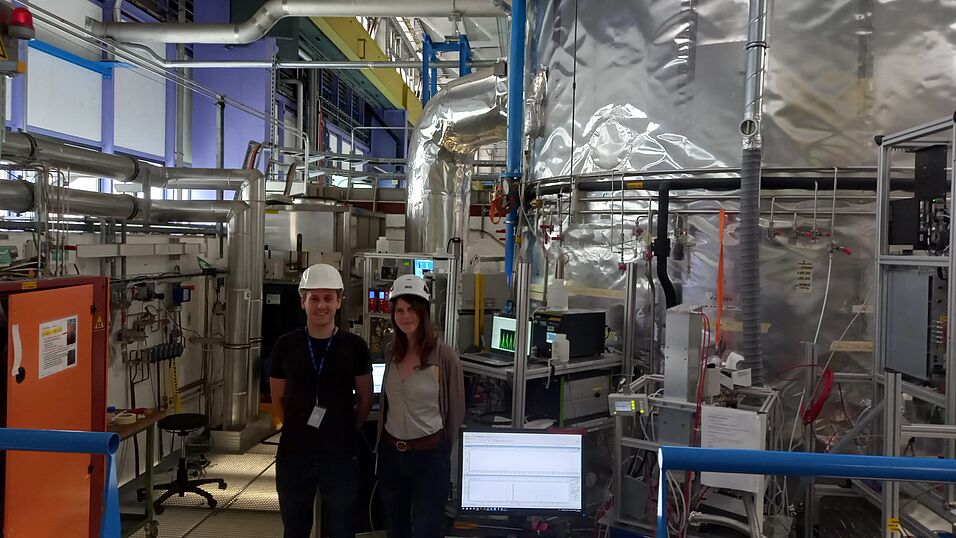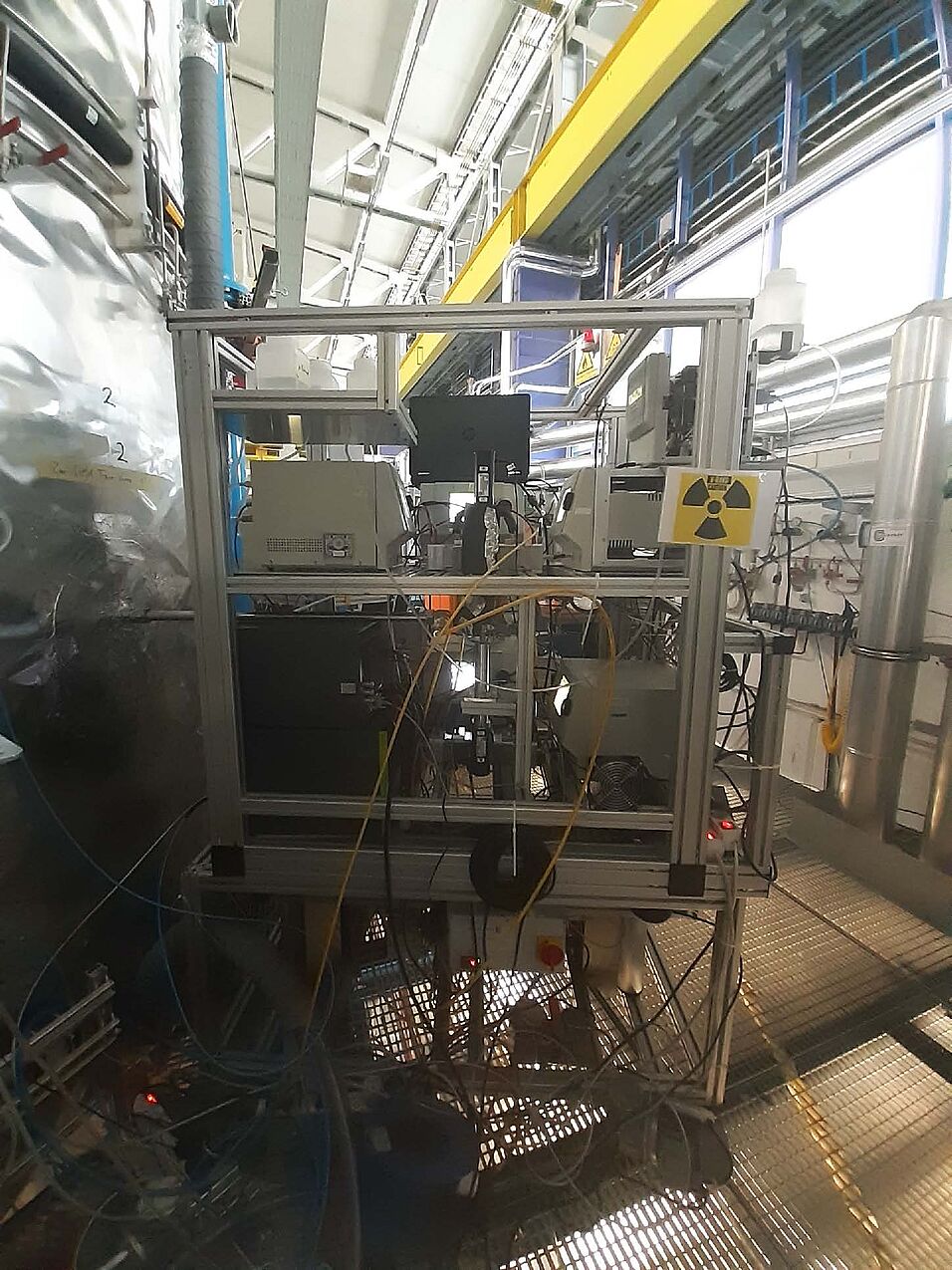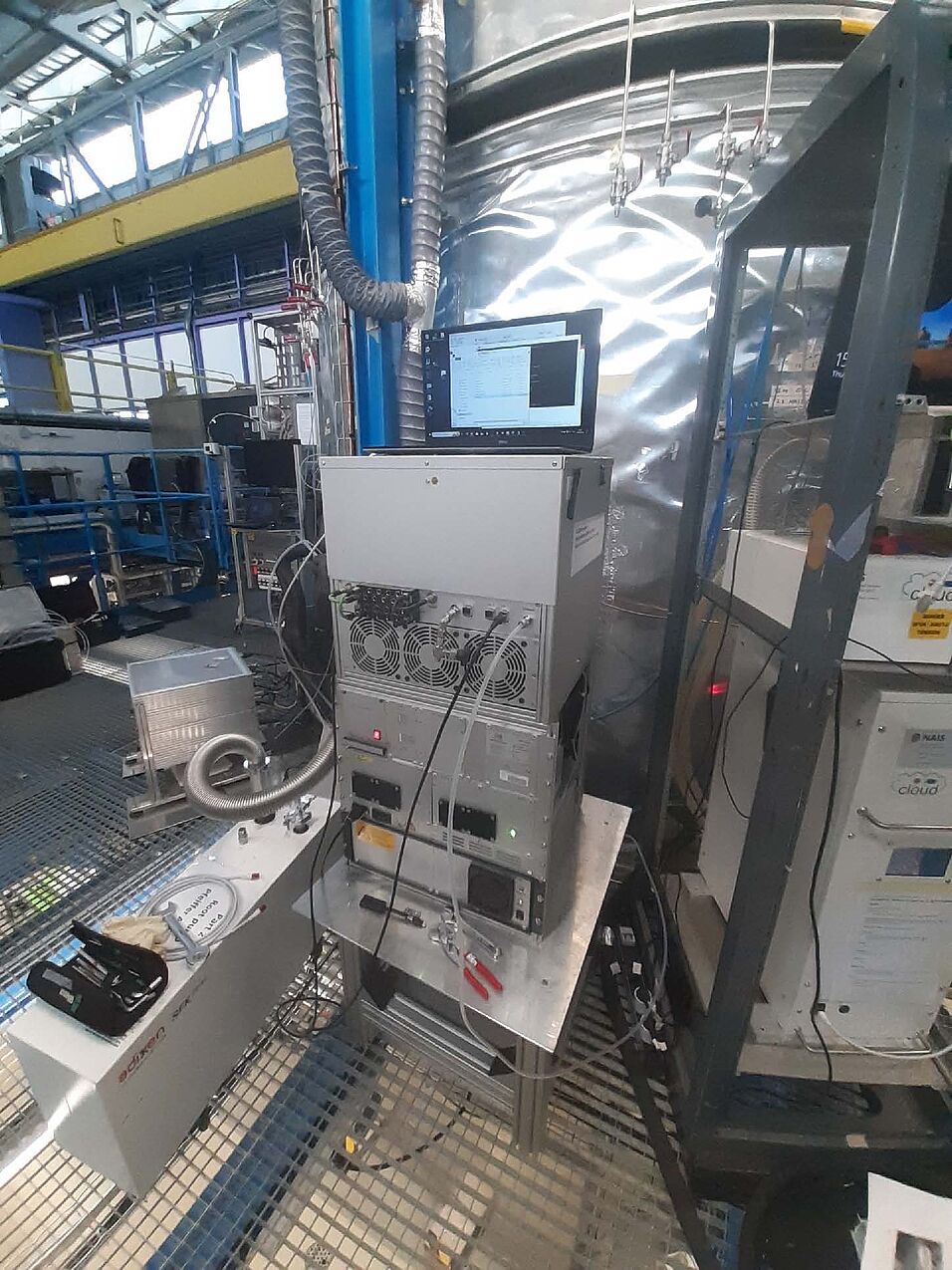Atmospheric aerosols have a large impact on the global climate system. Besides direct effects of scattering and absorption on incoming solar radiation, increased aerosol number concentrations can lead to higher albedo and lifetime of clouds, inducing significant indirect radiative forcing. However, formation mechanisms as well as their interactions in the atmosphere are still poorly understood. Aerosols remain the main source of uncertainty for anthropogenic climate forcing.
The CLOUD (Cosmic Leaving Outdoor Droplets) experiment at CERN, set up in 2009, is studying the formation and growth of new atmospheric particles from reactive gases. Such aerosolparticles, which are formed directly from the gas phase have a large impact on clouds and the global climate. Using a particle beam from the CERN Proton Synchrotron, CLOUD is investigating whether new particle formation is affected by ionisation from galactic cosmic rays. The heart of the project is the CLOUD chamber, also referred to as ’world’s cleanest box’, which enables the simulation of an air parcel at various atmospheric conditions. Temperature, humidity as well as trace gas concentrations are controlled precisely to observe new particle formation for single components and well-defined mixtures at different ambient conditions.
Between April 17th and May 12th 2023 the technical run CLOUD16T is taking place at CERN,where a new FLOw TUbe System (FLOTUS) is tested and characterized. Since wall losses in the CLOUD chamber limit the lifetime of aerosols, FLOTUS is designed as a chemical reactor to simulate aged trace gases in the atmosphere. These aged precursor vapours are then injected into the CLOUD chamber, where their nucleation potential, as well as their chemical composition are analysed with a large set of instruments such as highly specialised mass spectrometers, gas analysers as well as particle and cluster ion counters. One of the major tasks of the measurement campaign is the understanding of flow conditions and reaction times in FLOTUS and the transmission efficiency of the vapours into the CLOUD chamber.
The research group supervised by Paul Winkler has been closely involved in that interdisciplinarypr oject since its beginning in 2009. Currently, two instruments - DMA-train and Ioni-APiTOF - are operated at CERN to support CLOUD16T. The Differential Mobility Analyzer train (DMA-train) was developed at the University of Vienna and is used to obtain fast and precise size-distribution measurements. The IoniAPi-TOF is a modular and robust Time-of-Flight mass spectrometer designed for the detection and mass analysis of negatively charged clusters generated at atmospheric pressure.
The next measurement campaign CLOUD16 takes place in September 2023, where FLOTUS willbe operated with the settings evaluated in the current run. The team of Uni Vienna along with the DMA-train will be again part of that campaign and is looking forward to further exciting experiments.




